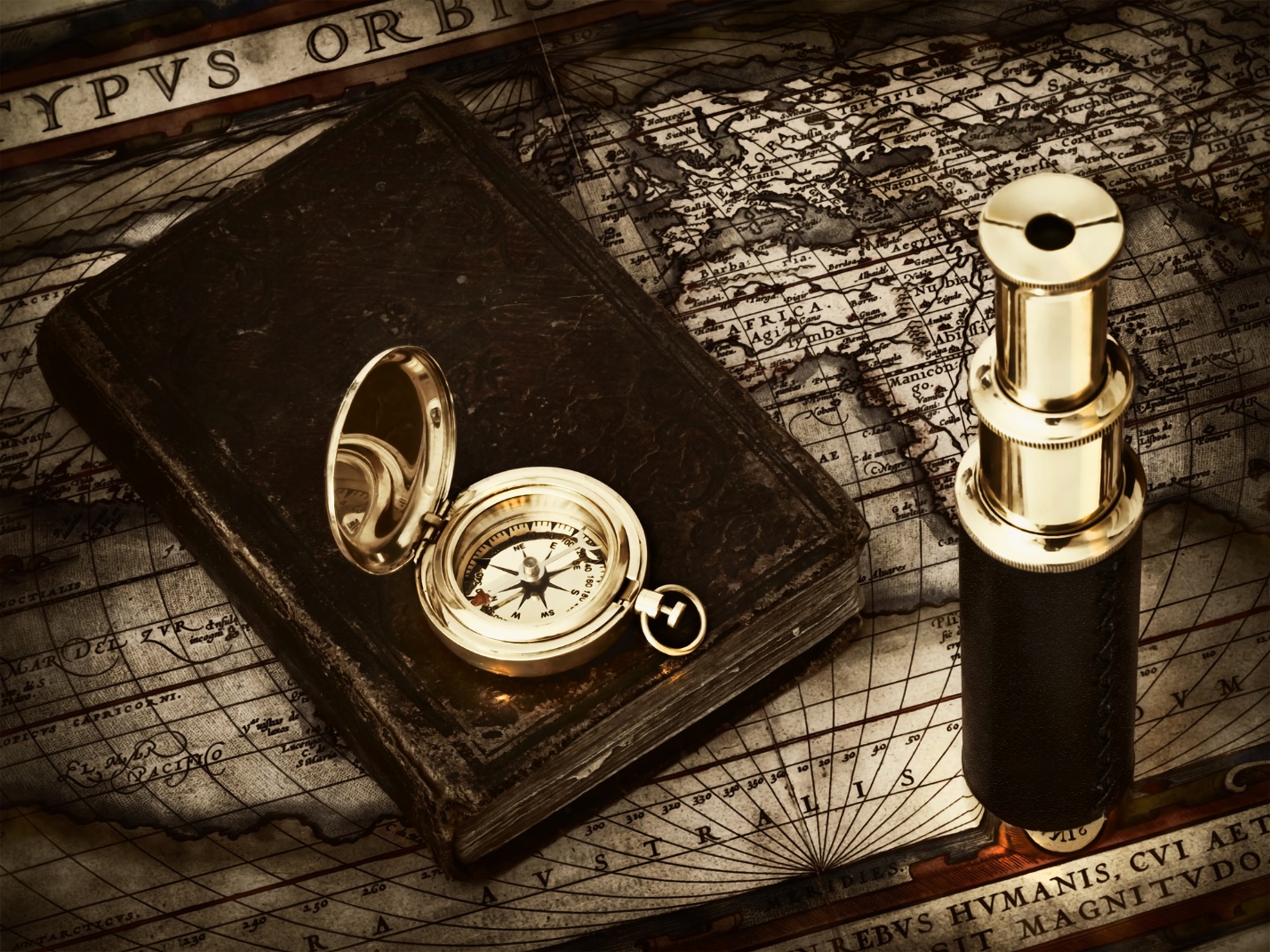BP36
In 1934, Admiral Richard E. Byrd almost died alone—alone being the operative word.

The intrepid explorer led an expedition to Antarctica, the coldest continent on the planet, to establish the southernmost weather station in the world which will be known as Advance Base. After a small shack was buried in the tundra, Byrd insisted that he would inhabit the weather station for a period of seven months.
Alone.
Why alone? He states in his journal that there is a restlessness within him that beckons him to retreat and to listen to what it is attempting to communicate to him. Probably even more importantly, he wants to experience a space where “remote from all but the simplest distractions, I should be able to live exactly as I chose, obedient to no necessities but those imposed by wind and night and cold, and to no man’s law but my own.”
So, once the shack is built and the meteorological equipment is erected, he sends his fellow explorers back across the endless prairie of the Ross Ice Barrier to Little America, the base camp that is over a hundred miles away. Then he digs in to enjoy seven months of solitude and total unaccountability to man or God.
For physical and psychological reasons, he only lasts four months in the buried shack. After weeks of silence, twenty-four-hour darkness, and frigid air as cold as 85 degrees below zero, the man who had longed for aloneness begins to yearn for human Presence. I’m not sure if Byrd ever used the actual word lonely in the journal he kept over the long months, but his entries do cry out with loneliness.
Byrd is an indomitable man who values personal strength and wants to avoid the appearance of weakness at all costs. But even he, who admires self-sufficiency to a fault, arrives at a point in his underground shelter where he begins to create mental representations of family and friends in his mind to help him survive the silence that entombs him. He surrounds himself with others in the world of his imagination to stave off the utter aloneness of the shack.
He discovers that even as independent and self-reliant as he is, he still cannot live without the Presence of others. He even makes the rather startling admission (for him) in early June that the affection of family is all that matters to a man in the end.
As we consider the life of Admiral Richard Byrd, one of the most independent individuals in human history, it is interesting that even he is not bulletproof to feeling alone and needing others. Can we deduce from his life that humans are not meant to be alone, that they are designed to be social beings who live to be in relationship with others?
It is one thing to be alone and another to be lonely. The Admiral embraced being alone, away from others–at least at the beginning. Later, however, he clearly appeared to be lonely in his aloneness. Being alone is something we all experience during our lifetime when we are physically away from others. (Of course, are there not those who feel alone even when they are in the presence of others?)

Loneliness is a horse of a different color. It is not a neutral state. It is experienced as uncomfortable or bad. It is a longing that must be satisfied, or we will devolve into depression and emptiness and possibly even into a desire for death. We do, indeed, appear to be hard-wired for love and relationship.
Following are some quotes from individuals who have experienced the negative phenomenon we call loneliness:
The eternal quest of the individual human being is to shatter his loneliness ~ Norman Cousins
Two possibilities exist: either we are alone in the Universe or we are not. Both are equally terrifying ~ Arthur C. Clarke
Loneliness is the ultimate poverty ~ Pauline Phillips
There is no loneliness like that of a failed marriage ~ Alexander Theroux
The trouble is not that I am single and likely to stay single, but that I am lonely and likely to stay lonely ~ Charlotte Bronte
Love is something far more than desire for sexual intercourse; it is the principal means of escape from the loneliness which afflicts most men and women throughout the greater part of their lives ~ Bertrand Russell
The world that I live in is empty and cold. The loneliness cuts me and tortures my soul ~ Waylon Jennings
I’m lonely. And I’m lonely in some horribly deep way and for a flash of an instant, I can see just how lonely, and how deep this feeling runs ~ Augusten Burroughs
My peers, lately, have found companionship through means of intoxication—it makes them sociable. I, however, cannot force myself to use drugs to cheat on my loneliness—it is all that I have—and when the drugs and alcohol dissipate, will be all that my peers have as well ~ Franz Kafka
Music was my refuge. I could crawl into the space between the notes and curl my back to loneliness ~ Maya Angelou
The most terrible poverty is loneliness, and the feeling of being unloved ~ Mother Teresa
But even so, every now and then I would feel a violent stab of loneliness. The very water I drink, the very air I breathe, would feel like long, sharp needles. The pages of a book in my hands would take on the threatening metallic gleam of razor blades. I could hear the roots of loneliness creeping through me when the world was hushed at four o’clock in the morning ~ Haruki Murakami
Hollywood is loneliness beside the swimming pool ~ Liv Ullmann

I don’t know about you but reading these quotes about loneliness is heart-breaking. It almost feels like loneliness is sewn into the fabric of the universe, like it is the default position of humanity—and so it is.
If we’re simply animals evolved from a primordial soup whose ingredients are rocks, gases and slime, why would we even feel loneliness? Loneliness suggests a desire for something more than biological satisfaction of our drives, as Freud would claim. Loneliness tells us we’re not mere animals, that we’re meant for more. Our hearts are longing for something beyond what we can see and touch, something more than food, drink and sex.
Designer Therapy for Life is built on the bedrock of several universal truths. One of those truths is that the world was designed by a personal God for Presence and relationship but was broken by sin and rebellion. The story of brokenness is written on our bodies in the font of death, but more so, it is written on a part of us we cannot see—our souls–that tell us we are alone in the universe—separated.
God made us for closeness, but there is a war going on in the universe that viciously opposes that closeness. The powers of darkness are hell-bent on sowing the seeds of loneliness, separation, abandonment, rejection, isolation, divorce, and hiding. Jesus came to restore the universe to its original design of closeness. He ushered in intimacy, love, being with, being heard, being seen, being in the family, and reconciliation.
If we believe in Jesus with our minds and love Him with our hearts, the yawning chasm that once separated us from God has been bridged. We are now family. But even though the war was won when Jesus died and rose again, the battle between separation and relationship in the human heart goes on in our daily experience. We’re not home yet. We’re still on the battlefield.

The roots of the original separation still run deeply through our hearts in the form of rebellion, sin, poor coping skills, anxiety, depression, fear, shame, hiding.
What are we to do?
Certainly, one option is to seek psychological help. DTFL believes that at its core, psycho-spiritual-relational therapy is about removing obstacles to intimacy with God, others and self because a state of separation is the worst experience in the universe and also the root of most mental illness. Jesus came not to scare us or shame us into hiding and loneliness. Quite to the contrary, He came to be with us. He came to remove condemnation and shame and to call us out of loneliness into unconditional love.
In the moment of justification, Jesus made us right with God and welcomed us into His universal family. Now He walks with us every day on the journey of sanctification to be our friend, our strength, and the focus of our affections. Now He is present with us to restore us to the poems He had composed us to be at the beginning of it all. Now He is our Beautiful Defender who protects us from isolation as we continue to fight against the lies and accusations that drive us into aloneness and loneliness.
So many things strive in and around us to oppose intimacy and to promote loneliness. I want to briefly consider three factors that contribute to loneliness and how Jesus resolves those three conditions.

Rejection of Presence: We are alone and lonely because we shut others out and hide on the inside. Just look at the story of Admiral Richard Byrd. What appeared to be at the root of his loneliness? If you read his journal, you will most likely conclude that he was a man who retreated from others emotionally. He had been wounded by people and did not move toward them to resolve the pain and anger around those wounds. Instead, he tended to retreat inside where his wounds turned into walls.
He chose to be self-sufficient. Ultimately, he wanted to be alone. He cut himself off from his heart and lived out of his intellect. Some might call this the defense of intellectualization. If you had been Byrd’s associate, you might have experienced him as physically present and amiable enough but impossible to access on a deep emotional level.
Was his independence an issue of pride? Maybe. Was it a fear of being seen as weak? Probably. Was it a coping skill that prevented him from getting hurt again or experiencing even deeper hurt? Yes. Admiral Byrd and all of us other humans must be aware of withdrawing from God and others and attempting to do life alone. Such withdrawal does not work. We were not designed to move away from but to move toward.
God’s Solution: Did you know that God did not give us the Ten Commandments or any other rule so He could twist our arm into obeying Him? God does not relate to us personally through do’s and don’ts. He relates to us by wooing us through a love that cost Him everything.
I think of a story I heard of an Australian cattle farmer who had such a mammoth pasture for his cattle (almost as large as the country of Israel) that he found it unfeasible to construct a fence around his herd. What could he do to keep his cattle from straying?

This cattle farmer made a decision that reminds me a bit of God and His commandments. Instead of building hundreds of miles of fences to keep his livestock contained by physical boundaries, he simply dug wells for water at various locations on his huge ranch. He discovered that the cattle didn’t stray too far from the wells because they knew that they needed to remain near their source of life.
God also has provided us with a well to sustain us instead of simply fencing us in. That well is his son, Jesus, who He sent to die for us and then become our very life. In Colossians 3:3 it says that “your life is hidden with Christ in God,” and in John 14:6, Jesus says, “I am the way, the truth and the life.” In John 4, Jesus says, “Whoever drinks of the water that I will give him will never be thirsty again. The water that I give him will become in him a spring of water welling up to eternal life.”
God does not make us approach Him. He will woo us and call us and give us the grace to choose Him. We still need to accept the call. We can make the decision to have a relationship with Him or remain outside His love. If we refuse, we will ultimately be alone because our current baseline position in this universe is already one of separation from our Designer.
To be without Jesus, is to be alone, and to be alone without Him, is to be profoundly lonely. We were created by Him and designed to be in relationship with Him. To be apart from Him is to be a boat without water, a flower without soil, a mammal without oxygen.
Blaming: When people feel guilty or accused, they often want to blame someone else. I’m sure you’ve heard some of the humorous excuses for car accidents: Leaving home for work, I drove out of my driveway and straight into a bus. The bus was five minutes early.
Another example is: I pulled away from the side of the road, glanced at my mother-in-law, and headed over the embankment.
Yet another: I started to slow down, but the traffic was more stationary than I thought.
On a more serious note, humans are quick to blame others. We don’t handle being guilty very well because we hate the experience of badness, so we externalize it. We take what is bad in us and put it in someone else and then point the finger at them. They are the critical person, not us. They are narrow-minded, not us. They are bad and we are good. In our minds, they become the untrustworthy people we must distance from. Blaming people soon find themselves alone.

Blaming is a way to deny the existence of our badness. In doing so, we distance from ourselves and from the Savior who came to die for our sins and wash us white as snow. We are left alone and lonely with our shame and guilt that then leaks out in the form of depression and anxiety and other mental illness and physical problems as well. How much blood pressure and heart disease and joint pain and even cancer could be the result of repressed emotions and sin while we attempt to project it all onto others?
Jesus’ solution: Jesus calls you to look inside and own your sin whether it be in the form of thought, word or deed–whether it be a sin of commission or omission. Because of Jesus, you don’t need to blame someone else and in the process distance from them and from you and Jesus.
In the Presence of Jesus’ grace and mercy, we can confess everything we have done wrong in this world because we know He will love us. He calls us to clean the inside of the cup (our heart) instead of blaming someone else.
Even psychological therapy done well invites the individual to look inside and know oneself instead of looking outside and blaming the other person. Scott Peck says that evil people (those who blame, scapegoat, and deny their own sin) typically will not come to counseling since therapy is a light-shedding process par excellence that exposes our inner badness.
So, come to Jesus and confess your sin. You will be welcomed, and He will be faithful and just to forgive our sins and to cleanse us from all unrighteousness. No more hiding will be needed.
Peacekeeping and Peace-breaking: Many people in this world do not address conflict well. They might avoid conflict entirely by being a peacekeeper who never resolves anything because they never make a ripple in the waters of relationship; or they might be a peace-breaker who engages in conflict often exhibiting strong anger, dominance and even violence.
The peacekeeper might be called co-dependent or a people pleaser. This individual may not want anyone to ever be angry or displeased with them, so they are always nice. But to be nice is to be fake. If your goal is to be nice, you often won’t say what you mean and you won’t mean what you say. Since you don’t want conflict, no one really knows if they’re getting an honest answer from you or one that will please them and avoid anger.
Others will experience you as very easy to be around—not necessarily a bad thing unless you’re hiding your true self.
The peacekeeper can often be a selfish, even fragile person who values their peace and comfort over being honest and real with someone. Instead of choosing the intimacy that comes with speaking truth, they prefer to have shallow relationships that are free of confrontation.
These individuals will not tell you the truth if they think you will be angry with them or if any kind of tension may result. You won’t know what they are really thinking, and they won’t know themselves because they’re so accustomed to censoring their true self. In many ways, they are alone on the inside and possibly very lonely as well. They move away from others.

The peace-breaker, on the other hand, may not be comfortable with conflict either so they simply end it as quickly as possible by running rough-shod over anyone who dares to disagree with them. These individuals move against others. They get big and loud and even threatening and quickly teach people to walk on eggshells around them. People often are very careful about what they say to the peace-breaker and so intimacy is lost.
Whether peace-breakers know it or not, they create distance between themselves and others and will eventually find themselves very alone and lonely because they will drive everyone away. People really don’t know them because they don’t trust being vulnerable around a volcano.
Jesus’ Solution: Jesus calls us not to be peacekeepers or peace-breakers. He calls us to be peace-makers. In other words, He invites us to honesty and healthy conflict instead of dishonesty and intimidation. He tells us to speak the truth in love. He wants us to move toward others even if it might create conflict and anger.
He doesn’t tell us to be nice or to be a chameleon around others because His desire is for us not to be fake or ingenuine in our relationships but to be transparent and true. Healthy intimacy moves toward others, not away from them or against them.
Jesus opposes fake peace and threatening anger. Both lead to distance and aloneness and eventually to loneliness.
So, what is the antidote to loneliness? Practicing Presence with God and with others—even with your own self. Instead of hiding, blaming or being a nice false self, move toward others, need them, let them see your true thoughts and feelings, confess your sins to them, forgive them, stop blaming them, and love them.
Jesus is the One who said that the two great commandments are to love God and to love your neighbor as yourself, so enter into relationships and love people enough to tell them the truth.
It’s all about relationship in this existence, not knowledge or money or power or sex. So, flee loneliness—the scourge of the universe–by running toward Jesus. He will never leave you alone in this world or in the next. God never intended you to be alone and lonely.

Fear not, for I have redeemed you; I have called you by name, you are mine. When you pass through the waters, I will be with you; and through the rivers, they shall not overwhelm you; when you walk through fire you shall not be burned, and the flame shall not consume you . . . you are precious in my eyes, and honored, and I love you . . . Fear not, for I am with you ~ Isaiah 43:1ff
Can a woman forget her nursing child, that she should have no compassion on the son of her womb? Even these may forget, yet I will not forget you. Behold, I have engraved you on the palms of my hands ~ Isaiah 4915-16
